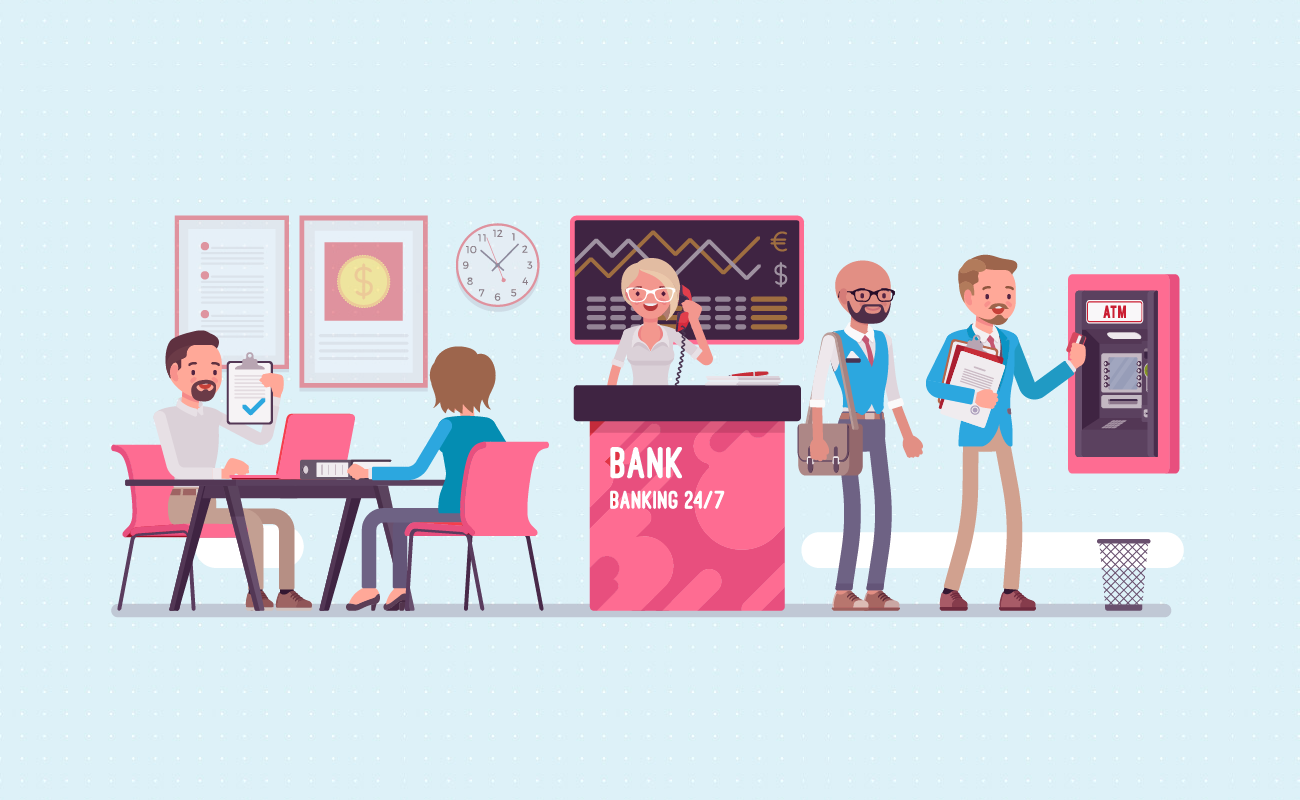 Commercial Mortgage Calculator
Commercial Mortgage CalculatorAre you considering investing in a comemrcial property? If so, use this calculator to estimate your monthly amortizing payments along with interest-only payments. You can also generate an amortization schedule which details monthly & annual payments along with their principal versus interest breakdown.
Guide published by Jose Abuyuan on July 22, 2020

Starting a business takes a considerable amount of time. On top of the planning and execution, you’ll need a large capital to develop your business goals. Moreover, it’s important to find the right commercial space for your daily operations. And as your company grows, you’ll need to anticipate its expansion, which should translate to greater profits.
But before all that, your business plans will need a boost. This is where commercial mortgage can aid your company. It will help you acquire commercial real estate, which is a crucial income-producing asset.
Read our guide to learn how commercial mortgages work and the best way you can utilize it. We’ll also talk about qualifying for commercial real estate loans and different sources of commercial financing.
Commercial real estate loans are mortgages used for purchasing or refinancing land and property for business purposes. This type of financing is used for commercial property development and expanding business operations. Examples of this include developing restaurants, guesthouses, offices, and production facilities. Companies looking to own an office building also take advantage of these loans.
Commercial mortgages are provided by banks, insurance companies, and credit unions. Other sources of commercial loans include include private investors, pension funds, and the Small Business Administration (SBA) loans backed by the government.
Business owners can take advantage of commercial mortgages for the following objectives:
Similar to residential loans, commercial mortgages allow you to borrow money which is secured against the property. But instead of obtaining homeownership, commercial loans function as the principal resource for financing a business. It’s designed to benefit private lenders and business owners alike.
Private lenders seek security from lending commercial mortgages. Meanwhile, business owners can own commercial property and do away with the long-term cost of renting. Likewise, they utilize the loan to build their company.
Commercial mortgages need to be personally guaranteed if a business does not possess adequate credit to obtain the loan. The lender’s credit requirement is based on the risk assessment during the underwriting process. If a borrower defaults on their loan, the personal guarantee allows the lender to seek compensation damages.
A personal guarantee commits your private assets to obain the commercial loan. It’s an unsecured pledge that is not tied to a particular asset such as a house. This puts borrowers at risk. When you sign a personal guarantee, any of your assets can be seized to repay the loan.

Payment terms for commercial mortgages typically range from 3 years up to 25 years. Though in some cases, large commercial real estate loans can go for 40 years. Lenders typically finance 70 percent of the commercial property’s price. The business owner then takes care of monthly commercial mortgage payments.
Commercial mortgages are structured differently from regular amortizing loans. More often, lenders expect borrowers to pay down the remaining balance earlier with a lump sum amount. This is called a balloon payment where you must make a large payment by the end of the term. That said, commercial real estate loans typically have short terms at 5 or 7 years. After this period, you must make the final balloon payment.

In general, commercial real estate loan terms are not as long as residential loans. Borrowers must make a balloon payment once the term ends. Note that the short term (5, 7, 10 years) is based on a full amortization schedule, which is usually a 30-year term.
When it comes to payments, borrowers have the option to make interest-only payments during the entire term. This means you can choose to only cover the interest charges. Then, once the loan reaches maturity, you must make a balloon payment on the remaining principal balance.
To better explain, let’s suppose you took a commercial mortgage worth $1.5 million at 9.5 percent APR. The loan term is 7 years, after which you make the balloon payment. Though it’s a 7-year term, the amortization is based on a 30-year loan.
Using our calculator, your monthly payment will be $12,612.81 for 7 years. If you opt for an interest only payment, it will be $11,875.00 per month. Once 7 years is up, you must make a balloon payment of $1,412,449.84 to pay off the loan.
In some instances, a lender may agree to a regular amortizing schedule with a 20-year payment duration. This depends on the loan provider and how they evaluated your case. But to manage your expectations, most commercial lenders often arrange balloon payments at the end of the term.
If for any reason you cannot pay back the amount, you must apply for commercial mortgage refinancing before the payment is due. But of course, ideally you should fulfill your end of the deal to gain your lender’s trust.
Refinancing requirements are very similar to applying for a new commercial loan. The lender will review your personal credit score, business credit score, repayment ability and how long you’ve owned the property.

Commercial mortgage lenders depend on business owners to generate high profits. This is expected in order to pay back the large loan. Because of such expectations, obtaining a commercial mortgage is often difficult for new businesses. The process also takes longer, which usually takes around 3 months. For construction loans, it can even take 6 months.
Just like residential loans, commercial mortgage applications depend on the borrower’s creditworthiness. But apart from reviewing your income source and personal credit history, lenders also scrutinize your business credit records. They will review your company profile, the board of directors, and financial statements. Expect them to ask for your business plan and projected profits from your operations.
To qualify for a commercial real estate loan, you must have a high credit score. Your credit rating must not be lower than 680. But to be sure, aim for a credit score of 700.
Get ready with a large down payment. Commercial mortgage providers usually require 20 to 30 percent of the property’s price. In some cases, it can even be up to 50 percent.
Commercial lenders prefer established companies that have been running for at least 2 years. On top of this, lenders require excellent credit history from businesses.
A small business must occupy 51 percent of the commercial property. Not using more than half of the building will make you ineligible for a commercial mortgage. If your business cannot fulfill this condition, you should apply for an investment property loan instead.
Investment property loans are designed for rental properties. It is commonly used to buy property and rent them out for additional income. This type of financing is also used to flip and sell houses for profit.

Commercial loan underwriters check three primary ratios to assess the viability of a commercial mortgage. These three main ratios are as follows:
Commercial lenders first evaluate the LTV ratio. It measures the percentage between the loan value and the market value of the asset securing the loan. Loan assessments with high LTV ratio are perceived as high-risk loans. This means a commercial mortgage with high LTV may be assigned a higher interest rate. In other cases, the commercial loan may not be approved. Likewise, lower LTV decreases the default risk for a lender.
Depending on the type of commercial mortgage, lenders usually accept between 60 to 80 percent LTV. For example, 80 percent LTV is accepted for multi-dwelling units and construction loans. Meanwhile, 65 percent LTV is accepted for land development. In recent years, commercial lenders have began offering non-conforming commercial loan programs. Since these offer much larger loans, they provide up to 90 percent commercial financing.
Commercial LTV requirements are a lot lower compared to residential loans, which can approve up to 95 percent LTV (for conventional loans backed by Freddie Mac and Fannie Mae). LTV is estimated with the following formula:
LTV = Loan amount / purchase price or appraised value
For example, the LTV for a $750,000 property with a $500,250 commercial loan is 66.7%.
= 500,250 / 750,000
= 0.667
= 66.7%
In calculating debt ratio, the borrower’s personal monthly debt is divided by their personal monthly income. Commercial underwriters rarely review a borrower’s debt-to-income ratio. They usually focus on the property’s income and expenses.
If the commercial property cannot adequately service the debt, they use a global cash flow analysis. This is estimated by adding the borrower’s income and the profits generated by the property. Doing so should show a proper coverage for the commercial loan request.
DSCR measures the available cash flow of a business. This money pays for its current debt obligations. It is a ratio used to assess commercial loans, apartment loans, and conduit loans. DSCR is the annual net operating income divided by its annual debt service. Generally, a DSCR of 1.15-1.35 is considered good. Most commercial lenders require a minimum DSCR of 1.25.

Ask your lender about the required documents before applying for a commercial loan. Lenders typically require your company’s tax returns and financial statements in the last 3 to 5 years. They review this to evaluate the stability of your business.
Gather the following documents for your application:
In addition, they may ask for other documents apart from those mentioned above. Be sure to supply the requested paperwork to avoid delays. Understand that more documents will take a longer time. Lenders perform thorough verification before they approve commercial mortgages.
In commercial lending, “points” refer to additional fees lenders place on top of your loan. For instance, if your interest rate is 9 percent with 2 points, the real cost of obtaining the mortgage is 11 percent.
How does it affect the cost? Lenders earn the 2 percent by charging added fees. That said, a low-interest loan may be weighed down with all kinds of extra charges. Lenders may require expensive upfront fees such as survey charges, legal fees, and appraisal fees. Some of these added payments are requested before approval, which can cost you thousands of dollars. To prepare your finances, make sure to factor in these costs.

Beware of commercial lenders that impose very expensive fees. There are scammers who charge costly fees without approving commercial loans. If you’re suspicious about a lender, it’s best to look for a more reputable one.
As you’ve noticed, commercial real estate loans have several similarities with residential mortgages. Both require credit checks, specific credit scores, and a particular down payment percentage. However, these requirements vary greatly from each other. Overall, commercial loans require more documentation compared to residential mortgages. They also take a longer time to approve.
The following table highlights the differences between commercial mortgages and home loans:
| Loan Details | Commercial Mortgage | Residential Mortgage |
|---|---|---|
| Borrower | Business entity | Individual |
| Government backing | Banks, insurance companies, private lenders – no government funding SBA loans backed by the government | Conventional loans backed by Freddie Mac and Fannie May Government-sponsored loans:FHA, USDA, VA |
| Repayment terms | 3 to 7 years for short-term commercial mortgages Can be 10-25 years for extended loans | Usually 15 or 30 years Available in 10 and 20 year terms Fixed-rate loans are common, but adjustable rate options are available |
| Interest rates and credit score | Creditworthiness is based on: income, personal credit history, company’s financial statements, company profile, collateral, business plan, projected earnings, etc. Minimum FICO score of 680 700 is preferred Rates vary per bank* Government-backed loans: SBA 504 loan: 2.33%-2.84% APR SBA 7(a) loan: 5.50%-9.75% APR (July 1, 2020) | Rates depend on individual’s creditworthiness Ex. 30-year fixed mortgage FICO score 760-850: 2.784% APR FICO score 700-759: 3.006% APR FICO score 680-699: 3.183% APR FICO score 660-679: 3.397% APR FICO score 640-659: 3.827% APR FICO score 620-639: 4.373% APR (July 15, 2020) |
| Loan-to-value ratio (LTV) | Between 60%-80% LTV LTV is specified by the lender Depends on the type of commercial property | Conventional: 95% LTV FHA: 96.5% LTV USDA: 100% LTV VA: 100% LTV |
| Down payment | Usually between 20%-30% Some lenders may allow 10% May sometimes be 50% | Conventional: average of 10% FHA: minimum of 3.5% USDA: zero down option VA: zero down option |
| How long it takes to close | Takes longer than residential loans Most take up to 3 months Construction loans can take 6 months | Conventional: 30-45 bus. days FHA: 10-60 bus. days USDA: 30-45 bus. days VA loans: 40-50 bus. days |

There are plenty of commercial lenders that provide fair rates and terms for borrowers. You can also check SBA loans backed by the U.S. Small Business Administration. Make sure to compare rates with banks and other insurance companies. This will help you determine a more favorable deal for your business.
Below is a list of primary sources for commercial real estate loans:
Borrowers can obtain a “permanent loan” from commercial lenders such as banks, life insurance companies, and credit unions. A commercial mortgage is called a permanent loan when it is your first mortgage on a piece of commercial property. These loans are usually amortized for 25 years. However, if the property is older than 30 years and shows damage, lenders may offer commercial permanent loans for only 20 years.
Permanent loans typically have low rates compared to other commercial real estate loans. This is because it secures property that has already been built and fully leased out. In terms of the most active providers, most permanent loans are usually granted by large banks.
There are benefits to securing a commercial mortgage from a bank. First, it provides you with better security compared to private lenders. Banks are fitted with updated reporting systems. They keep track of all your payments on their accounts. The timely tracking helps increase your credit score. And if your credit score is high, it’s easier to obtain commercial loans in the future.
Government-backed commercial mortgages offer low rates for borrowers. Most SBA loans also come with a fixed-rate payment structure. And if you make consistent payments on these commercial loans, they add points to your business’ credit score. The government-sponsored loans are offered by SBA-approved lenders.
There are two popular types of SBA loans: the SBA 7(a) loan and the SBA 504 loan.
SBA 7(a) is a commercial mortgage used to purchase land or buildings. Borrowers take advantage of it to renovate old buildings or construct new property. You can qualify for an SBA 7(a) loan only if you use more than 50 percent of your commercial property. SBA guarantees 85 percent of the loan amount on mortgages up to $150,000. For larger loans, SBA guarantees up to 75 percent. The SBA sets the maximum rate based on the current prime rate.
Other uses for SBA loans include the following:
When you apply for SBA 7(a) financing, you can borrow up to $5 million from any SBA-certified private lender. You can take it as a fixed-rate mortgage, a variable-rate mortgage, or a combination of both. As for payment terms, SBA 7(a) loans are fully amortize and usually paid up to 25 years.
SBA 504 loans are issued to company owners who currently use more than half of their commercial property. It comes in two types of loans: First, a loan must be granted by a Certified Development Company (CDC) that will fund 40 percent of the loan amount. CDC loans adhere to U.S. Treasury rates. Second, the other loan must come from a bank that will fund 50 percent of the loan amount. Because it combines financing from two sources, SBA 504 loans are used by borrowers who need larger financing. Business owners can use SBA 504 loans to fund the following objectives:
Business owners can get up to $5.5 million from their CDC lender. They can also obtain up to $5 million from the bank lender. In total, you can borrow over $10 million to expand your business operations. As for the payment structure, SBA 504 loans are usually fully amortized, with a repayment period up to 20 years.
Hard money loans are taken by borrowers who cannot get financing through traditional sources. This happens when you’ve had a recent foreclosure or short sale on a loan.
But as long as you have sufficient equity that’s signed as collateral, you can get approved for a hard money loan. Instead of requesting from banks and credit unions, hard money loans are provided by private investors.
If you’re looking for short-term financing, hard money loans come in short terms: 12 months to 3 years. You can use this type of financing to renovate business property or move your office to a better area.
However, be warned. Private lenders are more demanding with repayment. They ask for proof that you can generate enough funds to pay the loan. Independent lenders also require good credit scores and perform background checks on your credit history. Therefore, it’s also difficult to get approved. Moreover, hard money loans often require higher interest rates compared to commercial lenders.
With these concerns in mind, it’s important to manage your lender’s expectations. If a lender sees you are not producing the agreed amount, they might cancel financing. They may even take assets you signed as collateral until there’s enough return on the investment.
In conclusion, hard money loans are risky. So make sure you have income to fall back on to pay back your debt.

Small and large companies can take advantage of commercial real estate loans to enhance their business. Companies can use funds from commercial mortgages to expand their business and improve their operations. But unlike traditional home loans, commercial mortgages are more difficult to secure. Furthermore, expect to make a higher down payment for commercial mortgages.
Commercial lenders employ strict background checks on business owners and their partners. They carefully review your financial documents as well as your business plan. Because of this, it can take as long as 3 months or more to close a commercial mortgage deal.
Though the process seems taxing, obtaining a commercial loan helps you avoid rental expenses. Owning real estate provides you with more optionality, especially during rough economic downturns. If your rent increases, it protects you from rising rental cost during bubbles. It also provides your business with a lower cost structure, offering more financial cushion to weather economic down times.
Need more information on purchasing a new home? Read our guide and use our mortgage payment calculator.
Jose Abuyuan is a web content writer, fictionist, and digital artist hailing from Las Piñas City. He is a graduate of Communication and Media Studies at San Beda College Alabang, who took his internship in the weekly news magazine the Philippines Graphic. He has authored works professionally for over a decade.